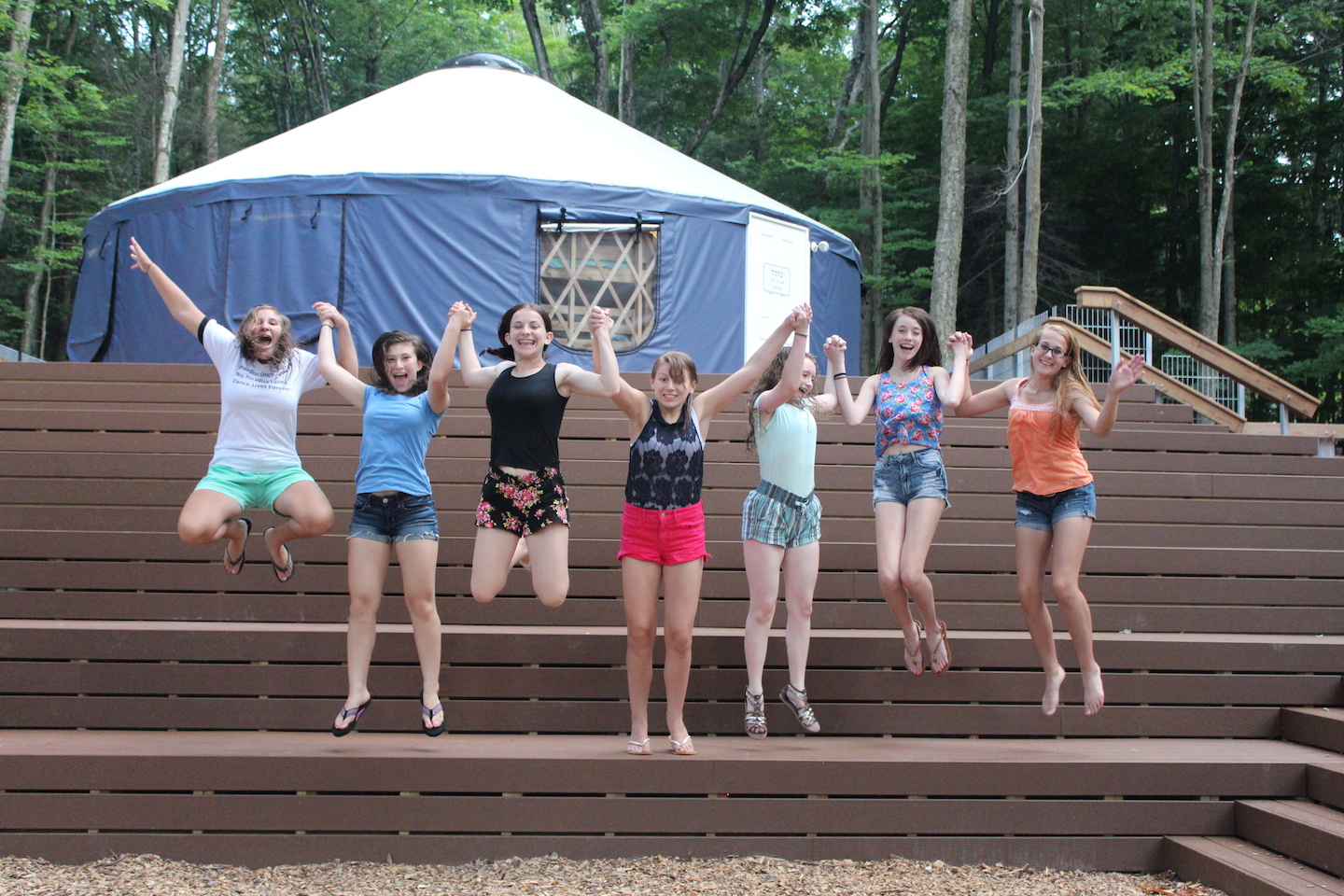TEL AVIV (JTA) — During five summers at Camp Ramah in Wisconsin, my moment of glory happened in the one place we tried to avoid: the camp kitchen.
Camp food was a punchline, especially the weekly Saturday night meal of tuna, cheese — and not much else. When my counselor asked for tomatoes on the side, camp management said no. So he offered me a late wake-up if I could get the kitchen staff, most of whom were guest workers from the former Soviet Union, to surrender some of the forbidden fruit.
After a few weeks, I was banned from the kitchen. Undeterred, I asked my Russian Jewish bunkmate how to say “Give me tomatoes, please,” in his mother tongue. The next Saturday night, I went back in.
“Dayte mye pomidori, pzhalysta,” I said in a terrible Russian accent.
The cook smiled, disappeared into a closet and handed me a single tomato. I sprinted back to my table, the tomato raised above my head in triumph. Only later did I find out the kitchen manager was chasing two steps behind me.
Since that day, I’ve never put “tomato-finagling” on my resume. But to my bunkmates and me, days like that are what camp was about: a chance to make friends, take risks, create memories and grow up — all while having fun.
That’s why I was disappointed to read that more and more Jewish parents are sending their children to “specialty camps” focused on technology or entrepreneurship. According to an article in the New York Jewish Week, “Camp: The New Internship,” parents now view summer as one more chance to boost their kid’s college application.
During my school years, our parents were also hyper-focused on college. But that ended with the final bell. Summers, and camp, were about something different. For eight weeks, our job was to run around, play cards under a tree, try a new craft, maybe hit the winning shot or meet a nice Jewish girl.
Camp never taught my friends and me how to give a firm handshake or pitch a start-up idea to investors, skills some of today’s “specialty campers” spend summer days studying. Instead, we learned how to sail a sunfish, how to DJ a radio station, how to cut and polish wood, how to row a kayak — even how to learn a page of Talmud. We played softball, basketball, frisbee and — of course — ga-ga, the Israeli version of dodgeball. Eventually, we figured out how to pitch tents, build a campfire and roast the perfect marshmallow.
I’m sure these skills prepared us somehow for successful studies and promising careers. Many of my fellow campers graduated Ramah to attend elite universities. But that was never the point. Camp meant freedom from expectations and measurable goals, from our classes, our parents and our future. It was a time to do something crazy, or sometimes to do nothing at all.
When I look back at camp, the memories that stick out have little to do with any of those skills or activities. They’re about the good friends I made and still have, the role models who inspired me, the life lessons I learned, and the hilarious or embarrassing stories I stumbled into.
I don’t remember how to sculpt wood anymore, but I do remember the goofy, hippie juggler who ran the shop. My Talmud set stays mostly closed, but I still talk regularly with my teacher, who spent hours guiding me in the endless teenage search for the meaning of life. I can no longer run a radio switchboard, but I haven’t forgotten the quiet thrill a friend and I felt as we unlocked the radio station one day, soon after sunrise, to DJ the morning show.
Today’s specialty campers, writing mission statements and studying marketing, may be missing the unstructured fun so crucial to our childhoods. So focused on creating, they could forget to recreate — to take a breather, make a friend and do something just because they want to.
It’s a cliche to say camp is about the friends, but it’s cliche for a reason. Kids haven’t kept coming back to camp for generations because it’s a resume builder. They keep coming back because camp is a place where you can make friends and grow up, all while spending the summer having fun.
Nearly 14 years since my last summer at Ramah, my best camp friend and I still talk at least once a week. Since those summers, we’ve stayed up late discussing college, careers, love and marriage. But as we’ve grown, one thing hasn’t changed: Every time we talk, we end up trading the same camp stories, cracking up over the same inside jokes. To me, that’s worth a stolen tomato.
JTA has documented Jewish history in real-time for over a century. Keep our journalism strong by joining us in supporting independent, award-winning reporting.






